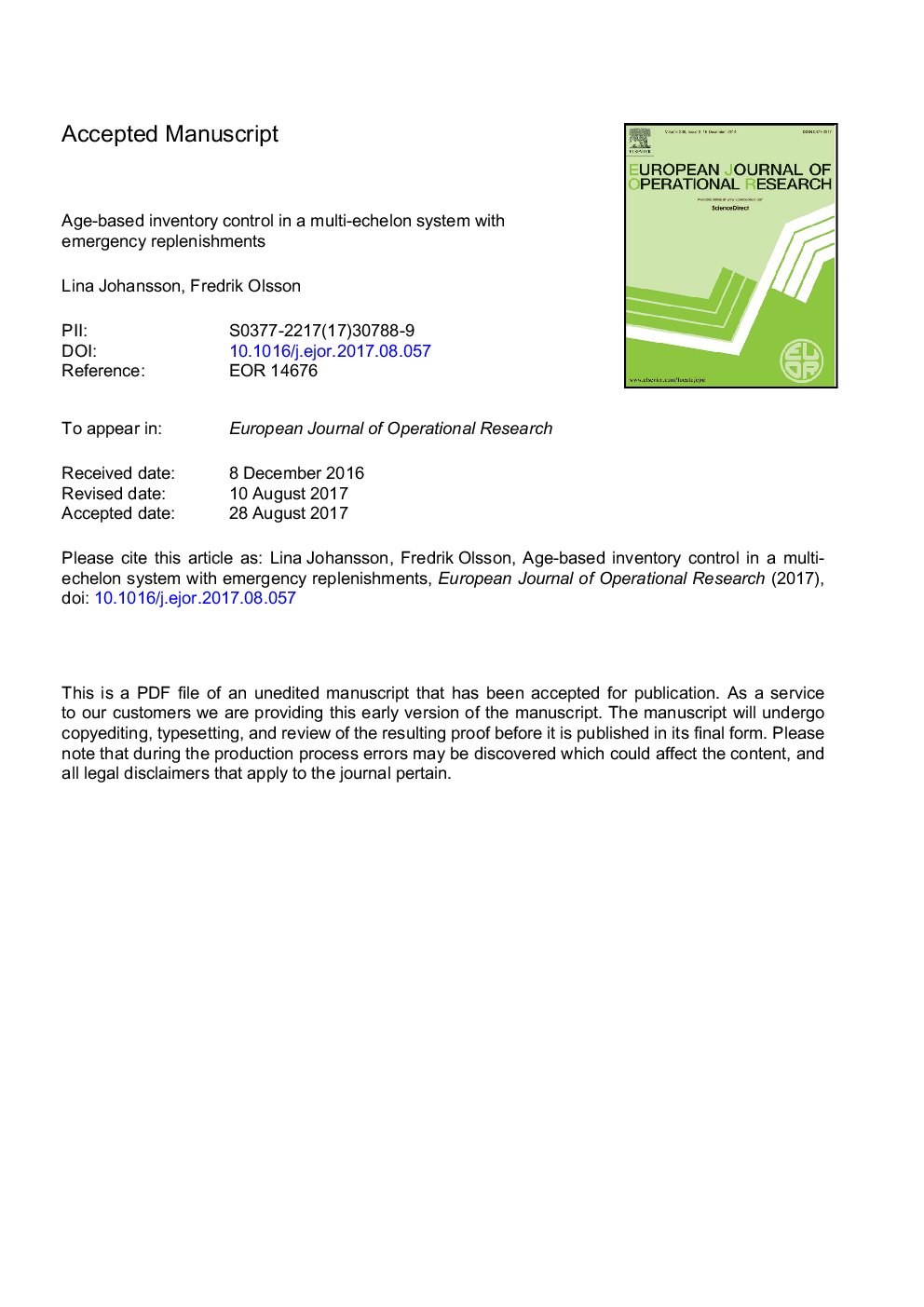| Article ID | Journal | Published Year | Pages | File Type |
|---|---|---|---|---|
| 6895237 | European Journal of Operational Research | 2018 | 32 Pages |
Abstract
This paper deals with a two-echelon spare parts inventory system with one central warehouse and a number of local warehouses facing Poisson demand. Normally, the local warehouses replenish stock from the central warehouse. However, if a demand cannot be satisfied within a pre-determined time window, an emergency shipment is requested from an outside supplier. Moreover, as in practice, this outside emergency supplier may not have ample capacity at the moment when the order was requested. This means that it is not always possible to realize such an emergency shipment within the stipulated time window. In many cases there are service agreements between the spare parts provider and the customer, that state the penalty cost if a customer demand is not met within an acceptable time window. The cost structure of such penalties is typically non-linear, and in this setting we consider piecewise constant penalty costs. That is, in cases where it is not possible to realize an emergency shipment from the outside supplier, a significant fixed cost is incurred. From a sustainability perspective, we also consider the production waste that arises from production stops when the time window is exceeded, and unplanned production stops lead to waste of perishable raw materials. We quantify the expected total CO2 emissions related to production waste and transportations connected to emergency shipments. In particular we show that it is important to take a more holistic view on CO2 emissions, and not only consider emissions related to transportation (as in most of the related literature).
Keywords
Related Topics
Physical Sciences and Engineering
Computer Science
Computer Science (General)
Authors
Lina Johansson, Fredrik Olsson,
